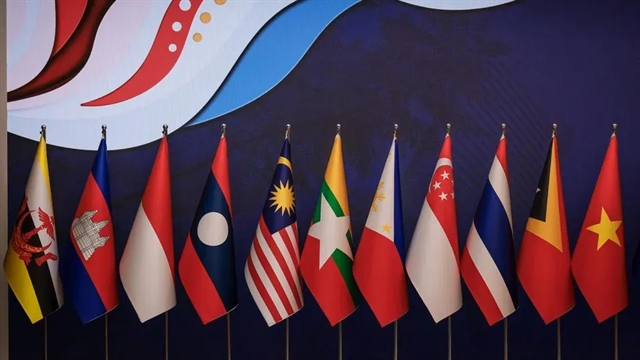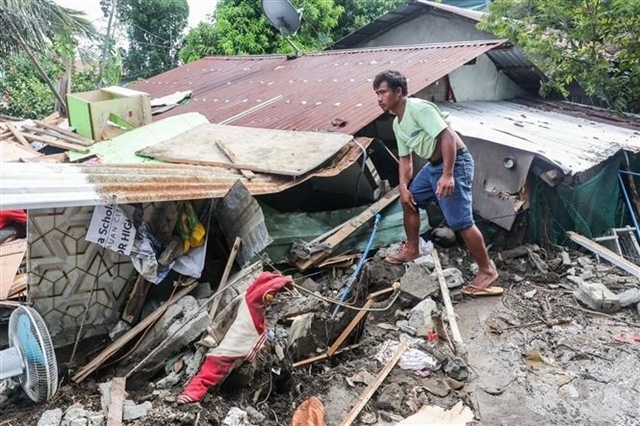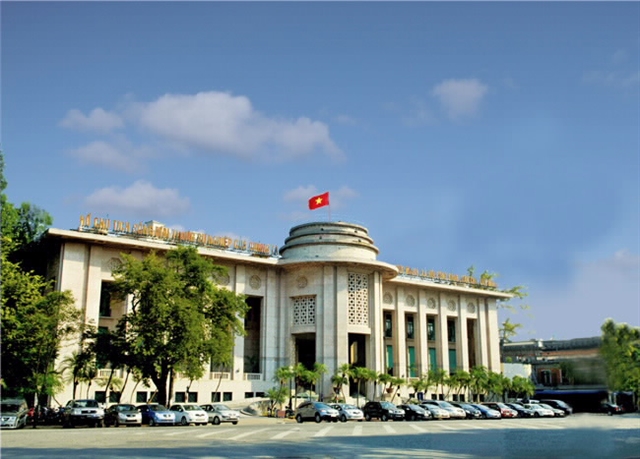 World
World


|
| A house in Batangas province, the Philippines, is damaged by a typhoon in October 2024. Photo: Xinhua/VNA |
HÀ NỘI – Thousands of people in 2,500 villages in northern Philippines were evacuated on November 11 early morning as Typhoon Toraji approached the country.
In less than a month, three typhoons have struck the Philippines, displacing tens of thousands of households and destroying their homes and livelihoods.
On November 10, President Ferdinand Marcos Jr. inspected areas severely affected by the typhoons and directed the provision of food and essential supplies to those impacted. He chose not to attend the 2024 Asia-Pacific Economic Cooperation (APEC) Economic Leaders' Week in Peru to prioritise leading disaster relief efforts in the country.
According to the Philippine Meteorological Centre, Toraji is packing maximum winds of 130 kilometres per hour (km/h) and gusts of up to 180 km/h as it moves northwest across Luzon Island, bringing widespread heavy rain. The typhoon is expected to weaken as it passes through the mountainous interior of Luzon before entering the East Sea.
The Secretary of the Interior and Local Government, Jonvic Remulla stated that the evacuation decision was urgent, given the limited time to ensure people's safety. Areas of Luzon, particularly mountainous regions, valleys, and plains that have already been affected by previous storms, are especially vulnerable to flash floods and landslides.
The three typhoons that swept through the Philippines over the past month have resulted in over 160 deaths and thousands of destroyed homes and farmland. With rainfall in just 24 hours exceeding the average for one or two months, the lives of more than nine million people have been severely impacted. Hundreds of thousands are currently staying in temporary emergency relief centres.
Southeast Asian countries, particularly Singapore, along with the United States, have provided support to affected areas, delivering food, drinking water, and other necessities. VNA/VNS




